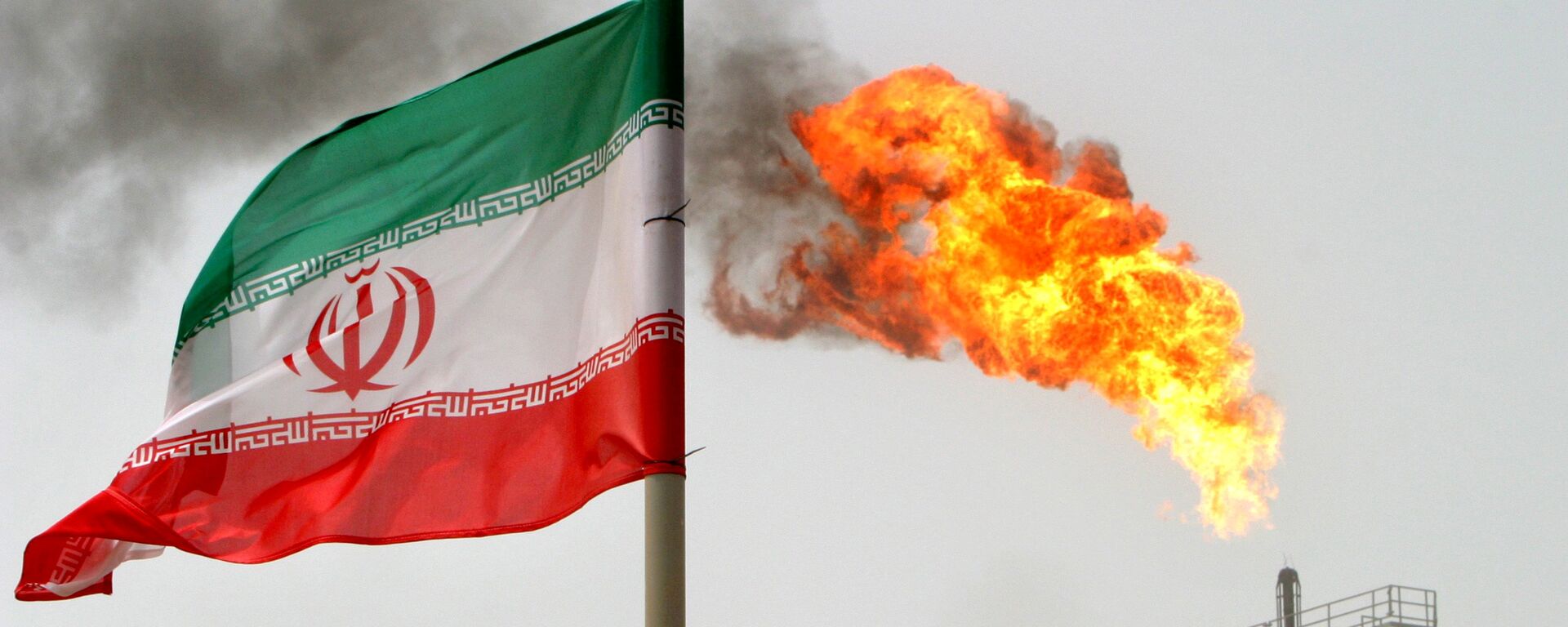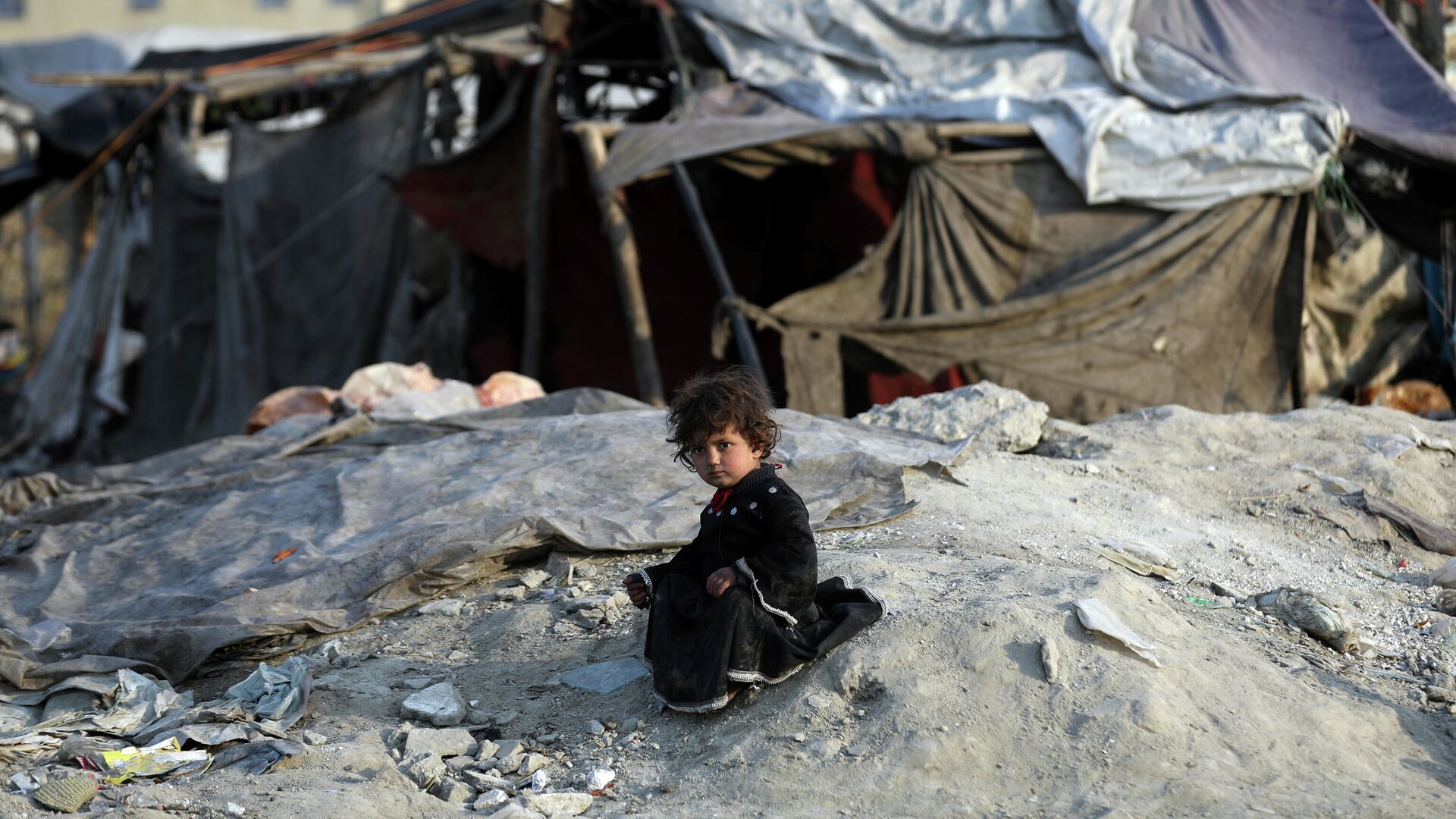https://sputnikglobe.com/20211030/afghanistan-among-worlds-worst-crises-social-services-on-brink-of-collapse-unicef-says-1090331608.html
Afghanistan Among World’s Worst Crises, Social Services on 'Brink of Collapse', UNICEF Says
Afghanistan Among World’s Worst Crises, Social Services on 'Brink of Collapse', UNICEF Says
Sputnik International
WASHINGTON (Sputnik) - Afghanistan is currently experiencing one of the world’s worst humanitarian crises, with the health system and social services at a... 30.10.2021, Sputnik International
2021-10-30T00:04+0000
2021-10-30T00:04+0000
2021-10-30T00:04+0000
unicef
afghanistan
humanitarian crisis
children
malnutrition
https://cdn1.img.sputnikglobe.com/img/07e5/0a/1d/1090331419_0:320:3072:2048_1920x0_80_0_0_5f3d48a98f3af4173a657e63b868d3d8.jpg
"Afghanistan now is amongst the world’s worst crises and the needs are growing by the day," Al-Janabi said. "In addition to the growing malnutrition crisis and food insecurity, the health system and social services are on the brink of collapse."Early this year, the humanitarian situation in Afghanistan was already one of the worst in the world, with nearly half of the country’s population - including some 10 million children - having been in need of humanitarian aid, the UNICEF representative said.Without immediate action, an estimated 1 million children are projected to suffer from severe acute malnutrition over the course of this year, and could die, the representative warned.UNICEF underscored that without urgent action, the humanitarian situation will continue to deteriorate in 2022. The representative noted that the current humanitarian funding requirement for Afghanistan stands at $192 million."This figure will certainly increase as the needs continue to grow. Of the $192 million UNICEF’s donors have funded around 70% of the needed support," Al-Janabi said. "We urge donors to maintain their humanitarian and development investments in Afghanistan so that the hard-fought gains over the past decades are not lost."The Taliban* came to power in Afghanistan in mid-August, causing the US-backed government to collapse. The group then set up a new government, led by Mohammad Hasan Akhund, who served as the foreign minister during the previous Taliban rule and has been under UN sanctions since 2001.*A terrorist organization banned in Russia
https://sputnikglobe.com/20211025/afghanistan-is-ready-to-buy-iranian-oil-if-tehran-paves-way-for-it-1090193635.html
afghanistan
Sputnik International
feedback@sputniknews.com
+74956456601
MIA „Rossiya Segodnya“
2021
Sputnik International
feedback@sputniknews.com
+74956456601
MIA „Rossiya Segodnya“
News
en_EN
Sputnik International
feedback@sputniknews.com
+74956456601
MIA „Rossiya Segodnya“
Sputnik International
feedback@sputniknews.com
+74956456601
MIA „Rossiya Segodnya“
unicef, afghanistan, humanitarian crisis, children, malnutrition
unicef, afghanistan, humanitarian crisis, children, malnutrition
Afghanistan Among World’s Worst Crises, Social Services on 'Brink of Collapse', UNICEF Says
WASHINGTON (Sputnik) - Afghanistan is currently experiencing one of the world’s worst humanitarian crises, with the health system and social services at a breaking point, UNICEF's representative in Afghanistan Salam Al-Janabi told Sputnik.
"Afghanistan now is amongst the world’s worst crises and the needs are growing by the day," Al-Janabi said. "In addition to the growing malnutrition crisis and food insecurity, the health system and social services are on the brink of collapse."
Early this year, the humanitarian situation in Afghanistan was already one of the worst in the world, with nearly half of the country’s population - including some 10 million children - having been in need of humanitarian aid, the UNICEF representative said.
"Due to the recent events and the economic shocks the country has been experiencing, more families are pushed to the brink," he said. "More than half of Afghanistan’s population is projected to face acute hunger as humanitarian needs grow to record levels. As food insecurity spikes in Afghanistan, so does severe acute malnutrition amongst children under five years old."
Without immediate action, an estimated 1 million children are projected to suffer from severe acute malnutrition over the course of this year, and could die, the representative warned.
"With winter quickly approaching, amidst drought, measles and acute watery diarrhea outbreaks millions of children are on borrowed time," Al-Janabi said. "UNICEF anticipates that the humanitarian needs of children and women will increase over the coming months amidst a severe drought and consequent water scarcity, an uncertain security environment, continued displacement, the devastating socio-economic consequences of the COVID-19 pandemic, and the onset of winter."

25 October 2021, 13:54 GMT
UNICEF underscored that without urgent action, the humanitarian situation will continue to deteriorate in 2022. The representative noted that the current humanitarian funding requirement for Afghanistan stands at $192 million.
"This figure will certainly increase as the needs continue to grow. Of the $192 million UNICEF’s donors have funded around 70% of the needed support," Al-Janabi said. "We urge donors to maintain their humanitarian and development investments in Afghanistan so that the hard-fought gains over the past decades are not lost."
The Taliban*
came to power in Afghanistan in mid-August, causing the US-backed government to collapse. The group then set up a new government, led by Mohammad Hasan Akhund, who served as the foreign minister during the previous Taliban rule and has been under UN sanctions since 2001.
*A terrorist organization banned in Russia


